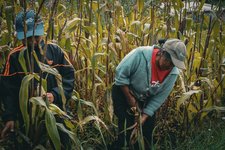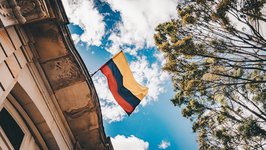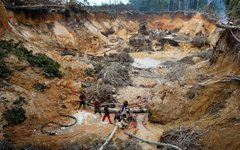Why should banks support EU mandatory human rights and environmental due diligence?
In light of the Covid-19 pandemic, calls for mandatory human rights and environmental due diligence (mHREDD) have gained momentum, but what does this mean for financial institutions? We explain why we think mHREDD is necessary and why financial institutions should support it.
In the last year there has been growing momentum behind the movement to introduce mandatory human rights and environmental due diligence (mHREDD) for corporations, including banks and other financial institutions. The Corporate Human Rights Benchmark, as well as the BankTrack Human Rights Benchmark, have shown that progress towards implementation of human rights due diligence under the current, largely voluntary framework, has been far too slow, and appears to be reaching its limits. One of the key themes of the 2020 UN Forum on Business and Human Rights was the need to shift the focus towards the ‘mandatory’ part of the ‘smart mix’ of measures advocated in the UN Guiding Principles on Business and Human Rights (UNGPs), and there was widespread support across all geographies and business sectors for mHREDD.
This shift is already well under way, with a growing number of governments having recently introduced, or committed to develop, legislative approaches which either encourage or require companies to undertake human rights and environmental due diligence, including financial institutions within their scope. (1)
In addition, there has been support from the business sector for the introduction of such legislation. In December 2019, 71 German businesses, including GLS Bank and Pax-Bank, called for a legal duty of care for human rights and the environment. In April 2020 a statement, led by the Investor Alliance for Human Rights and signed by 105 international investors representing over US$5 trillion in assets under management called on governments to require companies to conduct human rights due diligence. In May 2020 MVO Nederland, which represents 2000 Dutch companies including the biggest Dutch banks, came out with a statement of support for mHREDD. And in September 2020, 26 companies, business associations, and initiatives, including ABN AMRO, released a joint statement calling for EU-wide, cross-sectoral mHREDD legislation. Additionally, during the UN Forum in November 2020, BMO Asset Management explicitly supported mHREDD during a panel on the topic.
One of the most significant developments of last year was the announcement in April 2020 by EU Commissioner for Justice Didier Reynders that the EU Commission plans to introduce legislation on sustainable corporate governance, outlining a robust legal framework on companies' impact on human rights and the environment. When launching this process, the Commissioner stated that this legislation would be an important contribution to the European Green Deal objectives and will be crucial for the sustainability, competitiveness and resilience of businesses in the long run.
We have welcomed these developments and called on Commissioner Reynders to ensure the legislation will follow through and provide effective and enforceable regulation for responsible business conduct and corporate due diligence, including in the financial sector.
Why is mHREDD for financial institutions necessary?
We consider mandatory human rights due diligence to be a key tool in building back better from the Covid-19 pandemic. This crisis has exposed the fragility of global supply chains and shone a stark light on the socio-economic inequalities and human rights risks that exist within our society. mHREDD can help ensure companies, including financial institutions, address their human rights and environmental risks and identify the human rights and environmental impact of their responses to the Covid-19 pandemic.
However, the problems Covid-19 has brought to our attention existed long before the pandemic and the voluntary commitments made by corporations and financial institutions have been repeatedly proven too weak to tackle these issues. In BankTrack’s November 2019 human rights benchmark it was encouraging to see that more banks than ever now have policies in place that include a high-level commitment to respect human rights, and many of those banks are working to keep them up to date. However, we found no evidence that this is making a difference to people on the ground through banks addressing specific abuses. It is important that these high-level commitments make a difference in practice, meaning that banks must prevent, mitigate or remedy specific human rights risks and abuses, and show that they are doing so. Overall, the benchmark showed that banks are making unacceptably slow progress towards the full implementation of the UNGPs ten years after they were established, making a clear case for mandatory measures.
The power and influence of the financial sector is widely recognised, and we are happy to see the draft EU legislation taking a cross-sectoral approach and not leaving out financial institutions. This reflects the reality that across the value chain, finance is an integral consideration in how decisions are made. It also takes the commonsense approach that legislation will be most effective when everyone is playing to the same rulebook.
UN advice is clear that banks may cause, contribute to, or be directly linked to adverse human rights impacts through their finance in certain circumstances, and a bank’s responsibility to respond to an impact depends on the nature of its involvement. All banks have a responsibility under the UNGPs to respect human rights, including putting in place robust HREDD processes, and many financial institutions have committed to implementing the UNGPs. These approaches are also widely accepted in the financial sector, for example in the OECD guidance on Due Diligence for Responsible Corporate Lending and Securities Underwriting and the Dutch Banking Sector Agreement, both of which involve a multi-stakeholder approach including banks, CSOs and governments. This demonstrates that HREDD is possible and now commonly understood in the financial sector and legislation aligned with the UNGPs is, therefore, a logical next step...



